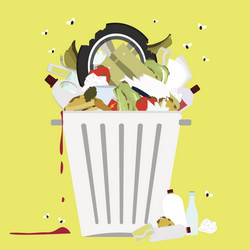Using urban waste to fight pollution
Urban wastes like food or gardening refuse are sources of soluble bio-organic substances (SBOs) that can be used to make a wide variety of products. The EU-funded ENVIRONBOS (Isolation, characterization and screening of environmental applications of bio-organic substances obtained from urban biomasses (EnvironBOS)) project aimed to use urban waste-derived SBOs to detoxify pollutants and manufacture new materials. ENVIRONBOS first used microbes to digest urban organic refuse, and then used acid to extract SBOs from the resulting organic soup. After characterising the chemical properties of various SBOs obtained from this process, researchers investigated the substances' potential for removing pollutants from water. They first wanted to see if the SBOs could act as photocatalysts for degrading organic pollutants like chlorophenols, dyes, pharmaceuticals and pesticides. In photocatalytic processes, energy from the Sun is absorbed by metals, creating highly reactive photochemical compounds that break the organic pollutant down into harmless constituents. The team also investigated ways to produce oxides and metallic particles such as titanium oxide or silver nanoparticles from SBOs. Once again, the intent is to use the resulting compounds as photocatalysts for degrading pollutants, or as adsorbing materials to remove toxic metals from solution. Researchers found several drawbacks to using SBOs as photocatalysts however, and instead opted to use them to bind iron. In this case, iron is the pollutant-degrading photocatalyst and the SBO enhances its catalytic effect. ENVIRONBOS' green concept of using waste-derived compounds to decontaminate pollutants will help to clean up the environment while reducing the impact of increasing urban refuse.







